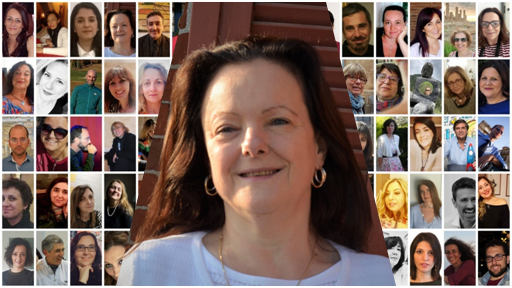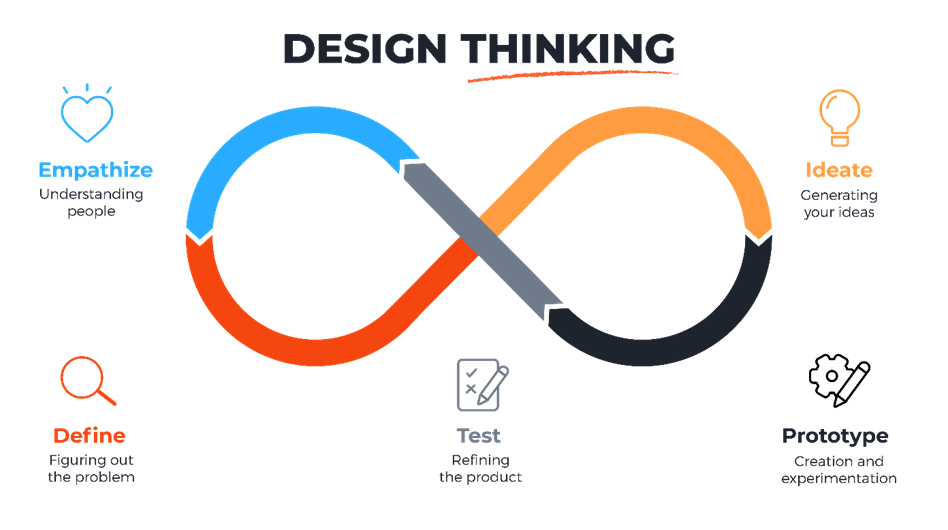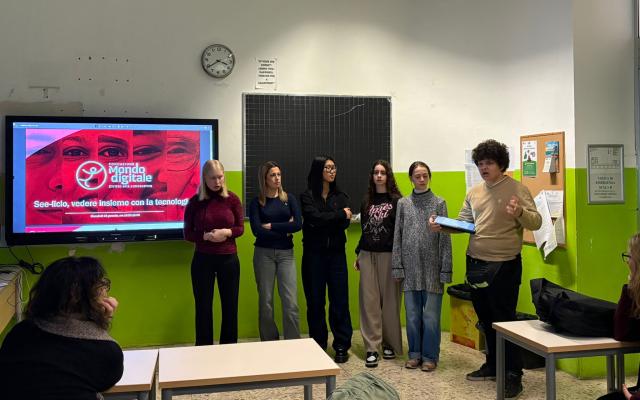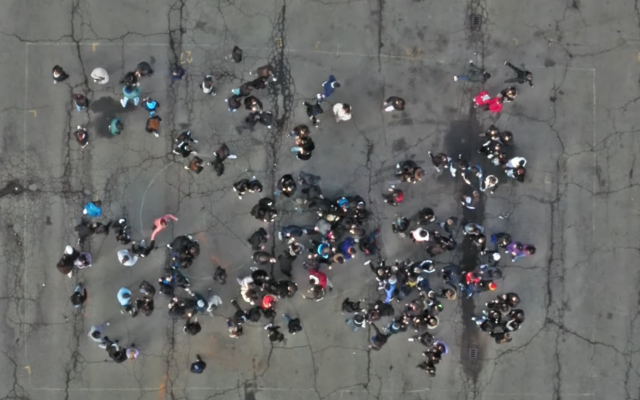After last week’s pause, we continue our meetings with “Our School” Professors. Today, we travel to Lombardy to meet Flavia Giannoli, Professor of Mathematics and Physics at the Liceo Scientifico A. Volta in Milan.

An educational process and learning evaluation expert, Flavia loves innovation and uses digital technology and e-learning in daily didactic activities to support collaborative, constructive learning through design thinking projects for the development of skills. She has produced e-learning content and as a professional trainer (as regulated by Bill N. 4/2013) she has trained teachers and new employees for local institutions and educational agencies accredited by the Ministry of Education. In agreement with the national Digital School Plan (PSND), she holds courses for directors, digital coordinators, innovation teams and #FuturaItalia labs.
As usual, we share a short video in which Federico presents himself and then an interview with Ilaria Gaudiello, who coordinates the works of the open source community of teachers.

INTERVIEW
Flavia, your profile as a teacher, trainer and learning designer immediately attracted the Fondazione Mondo Digitale team. What do you find most interesting in design thinking and how do you believe it allows for greater communication between school administrators, professors and students?
As a teacher, I am always on the lookout for didactic methodologies that will involve students in the learning process. Teaching skills is very complex. Various year ago, I participated, with one hundred other teachers, in a national project for the application of design thinking in school. The project produced a flexible guide for classroom innovation, service design thinking for teachers (ANP-Fondazione Telecom) that proposed an innovative didactic methodology based on individuals that was co-creative, holistic, sequential and designed to promote creativity, initiative and self-trust and assure our students of their future employment. For many years, I raised awareness about the project, which received praise even at conferences and congresses. The key words are competence, flexibility, autonomy, responsibility and acquisition of “resilience” to face issues and successfully manage initiatives. School administrators appreciate design thinking applied to didactic activities as it provides an answer to current needs in education by professors who are responsible for training students with 21st century skills to allow them to grow and find employment in a globalised and technologically advanced world. In this way, teaching skills becomes easier and is effective for cooperative learning and driving creativity., as well as perfect for creating soft learning units and final tests.

This year, you have shared your competences with FMD’s “Our School” and created a course on civic education with other talented and creative teachers. What do you believe is its main innovation?
Project “Young Citizens Grow: Describe Your Progress in Colour” was developed with Eugenio Vitanza and Caterina Coluzzi and the support of Ilaria Gaudiello. (I’d like to thank all of them!) It presents three innovative points:
- Flexibility – the entire course is based on three vertical areas that are flexible and interconnected on three nuclei: Constitution (orange), Sustainable Development (green) and Digital Citizenship (light blue). The material is presented through 15 worksheets (5 for each section) for each year, from which teachers select the most appropriate.
- Active involvement – the entire class council, together with the students, selects a course based on ten (coloured) worksheets and performs the indicated activities, using specific internal resources. All activities are based on the design thinking methodology.
- Narration and metacognitive reflection – students work in class, each year, for 20 hours (2 per worksheet) and dedicate the remaining 13 hours to metacognitive reflection on issues and the development of the narration on civic growth.
The exploration of the issue from the points of view declined by the three nuclei intersect, and each teacher proceeds in synergy with the others teachers. The two phases end with a review of the notes and reflections on the many examined and discussed issues in order to create a journey map for the final narration of the civic experience.
The creation phase consists in the development of digital narration by the students. This is introduced with the presentation, by one of the teachers, of the Metaverse tool and ended with a debriefing for self-evaluation and improvement of the product between teachers and students.
The evaluation phase shares the final product and its evaluation by peers (questionnaire on enjoyment) and teachers (evaluation of final product).
“Our School” was conceived as a solidary network for resilience to support teachers in the exchange of ideas, skills and practices to face the pandemic. How will this open-source community contribute to the transformation of schools in the future?
Innovation is an act, the introduction of new systems, new organisations, new production methods, etc. Innovation is concrete. It consists in every novelty, change and transformation that radically modifies or actively leads to the renewal of political and social systems, production methods, techniques, etc. (source: Treccani)
Innovation requires action, reference points and dynamic individuals who work in synergy. And this is why I really like “Our School” and wish to thank the Fondazione Mondo Digitale for supporting innovative teachers.
Innovation is … growth, it requires activity, passion and emotions rather than certainty… risking certainty for uncertainty to pursue a dream … questioning known issues …… (Pablo Neruda).
Innovating requires us to step outside our comfort zones, every day, with every new school year, and questioning one’s activities to share, listen give and receive expert contributions. What can be better than an open-school community like “Our School” in this context?



